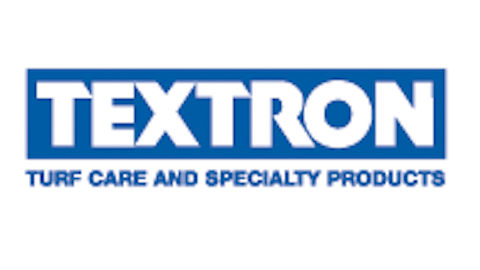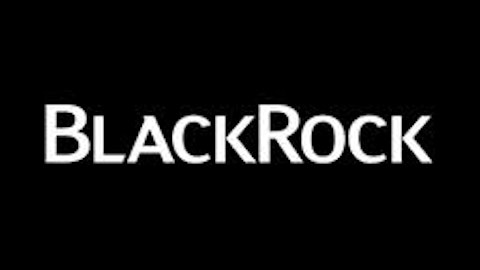
Let’s take a look at three companies that manufacture aircrafts or aircraft parts for different targets including defense and commercial airplanes: Honeywell International Inc. (NYSE:HON), The Boeing Company (NYSE:BA), and Embraer SA (ADR) (NYSE:ERJ).
Boeing: Delivering growth
The Boeing Company (NYSE:BA) is one of the leading aerospace companies. Apart from jetliners, the company manufactures rotorcraft, electronic and defense systems, missiles, satellites, and advanced information and communication systems. The Boeing Company (NYSE:BA) posted almost flat revenue for the first quarter of 2013 but it increased its net income 24% compared to same quarter of 2012, totaling $1.1 billion. This was due to improvements in operating performance, which was driven by an increase in the commercial airplanes segment as well as in the defense, space, and security one. This data is important for investors as the company could continue to generate profits with lower margins.
Management expects further increase in commercial deliveries and a core EPS of $6.30, which is a very good signal for investors. Moreover, the company’s growth is somewhat guaranteed by the record backlog of $324 billion in the commercial airplanes segment with attractive margins of around 10%. This is an excellent choice for investors that want exposure to the commercial aircraft sector as The Boeing Company (NYSE:BA) is geographically diversified and has a balanced revenue mix.
Honeywell: Waiting for expansion
Honeywell International Inc. (NYSE:HON) is a diversified company that has several segments of operations: aerospace, automation and control systems, performance materials, and transportation devices. One of its most important segments is the aerospace one as it accounted for more than 30% of 2013’s first-quarter sales.
However, Honeywell produces aircraft parts and not the complete plane like its peers in this article. Although Honeywell International Inc. (NYSE:HON) had almost flat sales in the first quarter of 2013 compared to the same quarter of 2012, it increased its operating margin 120 basis points along with a 9% improvement in its free cash flow. But, most importantly, the company increased EPS 16% to $1.21 during the same period. These are great results amid a sluggish global growth environment.
Management expects 3% sales growth for 2013 compared to 2012, and an increase between 7% and 11% in EPS. These excellent growth prospects have been reflected in Honeywell International Inc. (NYSE:HON)’s stock price, which has surged 48% from June 2012 to present. The company is properly positioned for further growth: its aerospace margins are expected to increase to an outstanding 19.6%, and there’s opportunity from entering new markets.
Regarding its geographic mix, 65% comes from the U.S., 17% from Europe, and 9% from Asia, which results in a lot of exposure to a very competitive market. Investors should wait for changes in its revenue mix and expansion to new markets.
Embraer: E-jets are key for growth
Embraer SA (ADR) (NYSE:ERJ) is a Brazilian company that produces commercial, military, small jets, and provides aeronautical services. The company has not been performing as well as its larger peers: it posted a 5.7% decrease in revenue for the first quarter of 2013 compared to the same quarter of 2012, its EBITDA margin plunged from 12.8% to 9.2%, and so did its net cash which declined from $301 million to $98.2 million in the same period. This heavily impacted its EPS which decreased from $0.58 to $0.16 for the same quarter, showing that the company is having issues with its operating expenses and is suffering from fewer delivery orders.
One of the reasons behind the increase in operating expenses is that Embraer SA (ADR) (NYSE:ERJ) had to renew its settlement with the labor union which it finalized in February 2013, and that impacted the balance sheet as a non-recurring payroll expense.
However, the company’s stock has jumped more than 46% since June 2012. The success of the company seems to be in its e-jets (60 to 120 seat segment), in which the Brazilian company has 42% of market share in net orders and 61% in e-jet deliveries. These good growth prospects have been boosted by the increase in demand of cheap airlines such as Ryanair, Vueling, or Easyjet.
Bottom line
The aerospace industry is a very competitive market globally, but it has not been hit severely as other sectors by the global crisis. Although sales have been slow to recover, some companies have reduced operating expenses and this has helped them weather the crisis, such as Boeing and Honeywell International Inc. (NYSE:HON). But, Embraer SA (ADR) (NYSE:ERJ) is having problems in this aspect.
Every company has its risks: if investors are seeking a safer bet, they should go with The Boeing Company (NYSE:BA), if they wish to gain exposure to the aerospace industry but at the same time diversify some of the risks, Honeywell is the answer. Finally, long-term investors should go with Embraer SA (ADR) (NYSE:ERJ) as it is a leading company in the small aircrafts segment that has been growing at a good pace in the last couple of years.
The article Defense and Commercial Flights Are on a Roll originally appeared on Fool.com and is written by Vanina Egea.
Vanina Egea has no position in any stocks mentioned. The Motley Fool recommends Embraer-Empresa Brasileira. Vanina is a member of The Motley Fool Blog Network — entries represent the personal opinion of the blogger and are not formally edited.
Copyright © 1995 – 2013 The Motley Fool, LLC. All rights reserved. The Motley Fool has a disclosure policy.


